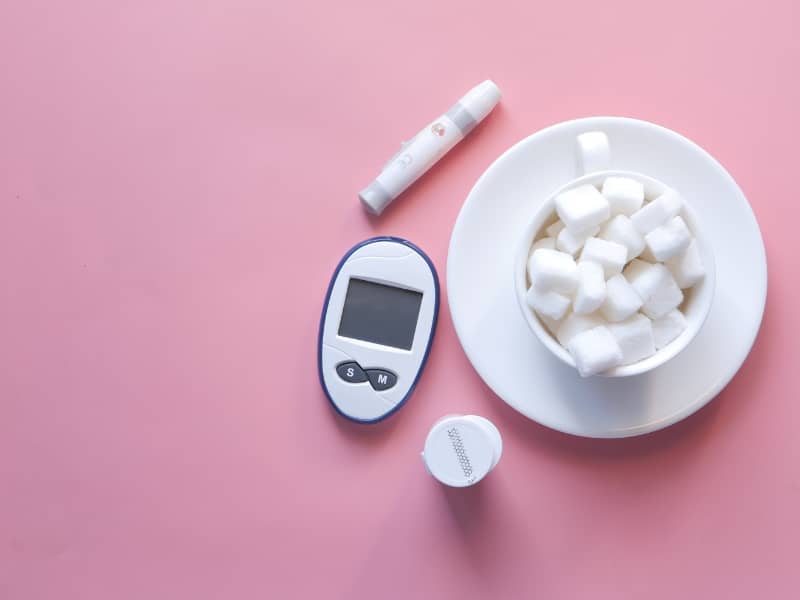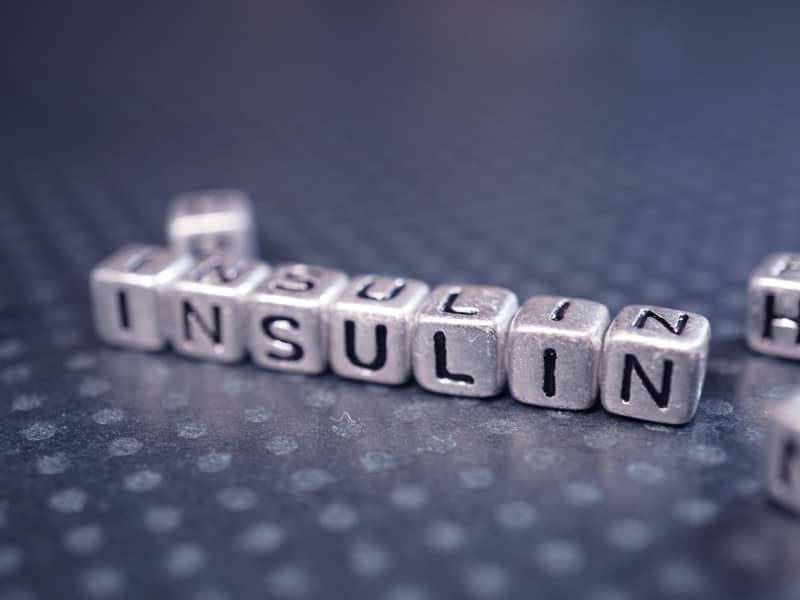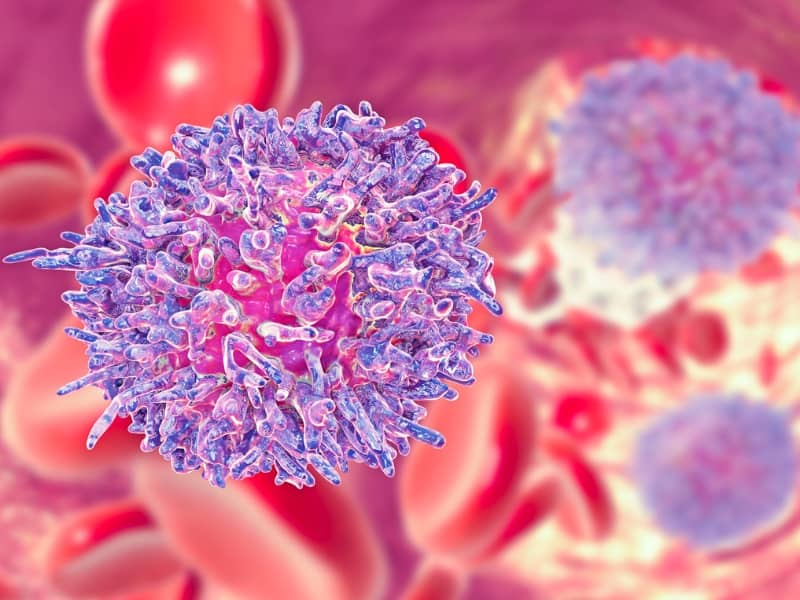Managing insulin, leptin, and cortisol can transform your weight loss journey. These hormones help control your appetite, metabolism, and energy balance. Managing these key players helps you lose excess weight with greater efficiency. In this guide, you will find simple strategies and lifestyle changes. These will help you balance hormonal influences. As a result, your weight loss goals will become easier to reach.

Table of Contents
- I. The Intricate Dance of Hormones in Weight Management
- II. Unraveling the Complex Interplay of Diet and Hormones
- III. Lifestyle Modifications to Fine-Tune Hormonal Regulation
- IV. Creating an actionable plan for sustainable weight loss
- V. Anticipating challenges and roadblocks in your journey
- Regulate insulin levels to support lasting weight loss
- FAQ
Key Takeaways:
-
Eat a balanced diet with whole foods. Include lean proteins, healthy fats, and fiber. This will help stabilize insulin and support hormonal balance.
-
Regular exercise, such as strength training and cardio, improves insulin sensitivity. It also aids in weight loss.
-
To manage cortisol, focus on sleep quality and stress levels. High cortisol can cause weight gain and hormonal imbalances.
-
Try intermittent fasting or timed eating windows. They can lower insulin levels and boost fat burning.
-
Drink enough water and cut down on processed foods and sugars. These can mess with insulin and leptin signals and boost fat storage.
I. The Intricate Dance of Hormones in Weight Management
Weight management depends on hormones that affect how your body processes food. They also control hunger and feelings of fullness. Knowing these hormones can guide you in making smarter diet and lifestyle choices. Each hormone has a special role. They affect your metabolism, energy balance, and body composition.
1.1. Decoding Insulin: The Key to Blood Sugar Balance

Insulin is a hormone produced by the pancreas that regulates blood sugar levels. After a meal, it helps cells absorb glucose for energy while storing excess glucose as fat. Insulin balance is key for steady energy and avoiding weight gain.
1.2. Leptin’s Role: The Satiety Hormone That Signals Enough
Leptin comes from fat cells. It helps control appetite by telling your brain when you’ve eaten enough. Higher leptin levels usually mean more fat mass and less hunger. This creates a feedback loop that helps manage weight. But factors like obesity can lead to leptin resistance, disrupting this mechanism.
Leptin is key to your body’s energy balance when it works well. An ideal scenario happens when you eat. Your leptin levels rise, which reduces your appetite and boosts energy use. In leptin resistance, your brain doesn’t respond to leptin signals. This makes it hard to feel full and can lead to overeating. Chronic stress, poor sleep, and high-sugar diets can worsen this resistance. So, it is important to tackle these issues for better weight management.
1.3. Cortisol’s Influence: Stress and Its Metabolic Impact
Cortisol, the primary stress hormone, can have a major effect on your weight. Cortisol, known as the “fight or flight” hormone, can raise appetite. This leads to cravings for high-calorie foods. So, it may cause weight gain, especially in the belly area.
High cortisol levels from long-term stress can cause various metabolic issues. Frequent stress can hurt fat metabolism. This raises blood sugar levels and boosts insulin production. Over time, these changes may lead to weight gain. Stress can cause emotional eating. This makes it harder to keep a healthy weight. Knowing your stress management techniques is key. Adding practices like mindfulness or exercise can lower cortisol levels. This, in turn, helps you on your weight loss journey.
II. Unraveling the Complex Interplay of Diet and Hormones

Diet is key for managing hormones, which help with weight loss. Some foods and eating habits can change how sensitive your body is to insulin. They can also impact leptin levels and how much cortisol your body releases. Understanding how diet affects hormones helps you create a nutrition plan. This plan can balance hormones and support weight loss. This knowledge helps you make smart choices that match your body’s hormonal needs.
2.1. Nutrient Timing: Optimizing Meals for Hormonal Balance
Strategic meal timing can enhance your hormonal health. Consuming balanced meals on a regular basis helps maintain steady blood sugar levels. It also lowers cortisol spikes. Have three to five smaller meals each day. Include protein, healthy fats, and complex carbs. This helps keep your energy steady and hormones balanced.
2.2. The Glycemic Index: Meal Choices That Promote Stability
The glycemic index (GI) ranks foods based on their potential to raise blood sugar levels. Low-GI foods like whole grains and legumes help keep insulin levels steady. This prevents sugar spikes and crashes, which can cause hunger and weight gain. Choosing low-GI options helps keep hormones steady and supports a balanced metabolism.
Adding low-GI foods to your diet helps keep insulin steady and aids weight loss. Foods such as sweet potatoes, quinoa, and most fruits have a low GI score. They digest at a gradual pace and provide lasting energy. This helps avoid sudden blood sugar spikes. Choosing these options helps control your appetite. It also supports good leptin sensitivity, which is key for managing hunger and energy use.
2.3. Fats, Proteins, and Carbs: Balancing Macronutrients for Hormonal Harmony

A balanced intake of macronutrients is important for maintaining hormonal equilibrium. Eating healthy fats, protein, and good carbs gives your body important nutrients. This helps your hormones work their best. This balance boosts insulin sensitivity. It also enhances leptin signals for feeling full and helps control cortisol levels. All these factors support your weight loss journey.
To achieve macronutrient harmony, focus on whole food sources. A nutrient-dense diet includes healthy fats from avocados and olive oil. It also has lean proteins from chicken or legumes. Complex carbohydrates from brown rice or leafy greens round it out. This helps stabilize blood sugar and control hunger. It also nourishes your hormonal pathways. This way, each hormone can do its job in weight loss.
Lose Weight Gently with Intueat>>>
III. Lifestyle Modifications to Fine-Tune Hormonal Regulation
Changing your lifestyle can greatly improve hormonal balance and help with weight loss. Small changes in your daily routine can balance insulin, leptin, and cortisol. Focus on stress management, sleep, and physical activity. Make careful choices in these areas. This supports your hormonal health and helps you manage your weight in a way that lasts.
3.1. Stress Management: Harnessing Mindfulness and Relaxation Techniques
Mindfulness and relaxation techniques, such as meditation and yoga, can reduce stress. They also help balance hormones. Managing stress well stabilizes cortisol levels. This helps control insulin and leptin, leading to healthier weight management.
3.2. Sleep Patterns: The Underrated Hormonal Regulator

Prioritizing quality sleep plays an important role in hormonal regulation. A regular sleep schedule helps the body make the right amount of leptin. This lowers hunger signals and boosts insulin sensitivity, aiding in weight loss.
Not getting enough sleep can throw off your hormones. This causes more cortisol and less leptin, which increase cravings and appetite. Try to get seven to nine hours of sleep each night. Go to bed at the same time every day. This helps keep your body’s natural circadian rhythm in check. Avoid screens one hour before bed. Blue light can block melatonin, which helps control sleep cycles. Improved sleep can have a much greater impact on your hormonal health and aid in weight loss.
3.3. Physical Activity: Tailoring Exercise to Optimize Hormonal Levels
Incorporating tailored exercise into your routine helps optimize your hormonal levels. Combining strength training with cardio can improve insulin sensitivity. It also boosts leptin responsiveness and helps regulate cortisol. These factors are key for successful weight management.
Doing moderate to high-intensity interval training (HIIT) can boost your metabolism. It also helps balance hormones, even if your workouts are short. Get at least 150 minutes of moderate exercise each week. Also, include strength training twice a week. This balanced approach helps you lose fat. It also builds muscle and boosts health. This way, you can better reach your weight loss goals. Change your intensity based on your fitness level. Increase the duration and challenges in stages over time to achieve the best results.
IV. Creating an actionable plan for sustainable weight loss

A sustainable weight loss plan means making healthy changes that fit your hormones. Begin by assessing your current diet, exercise routine, and stress levels. Include regular exercise, healthy foods, and stress-management methods that fit your goals. Break your plan into small steps. Avoid big changes to achieve lasting results. The goal is to build habits that help you lose weight. These habits also maintain hormonal balance and boost your well-being.
4.1. Setting Realistic Goals: Measuring Success Beyond the Scale
Weight loss isn’t only about the scale. Setting realistic goals can boost your energy. It also helps improve sleep and build a healthy relationship with food. Aim for small goals, like losing 1-2 pounds each week. Also, celebrate other wins, like better stamina or a happier mood. This wider view will motivate you. It will also help you see the benefits of your work.
4.2. Tracking Progress: Tools and Techniques for Hormonal Awareness
Using different tools and methods can help you see how hormones affect your weight loss. Hormonal tracking apps, wearables, and food diaries show how food and activities affect insulin, leptin, and cortisol levels. Monitoring these factors helps you adjust your plan with careful consideration. This way, you can achieve the best results.
Using a hormonal tracking app helps you log meals, mood changes, and energy levels. This data can show patterns. For example, it can reveal which foods raise your insulin or disturb your sleep. This highlights the direct connection between your hormones and your weight loss journey. Using these tools helps you connect with your body. This connection helps you change your diet and lifestyle based on real facts, not guesses.
4.3. Adjusting Tactics: Adapting Your Approach to Hormonal Feedback

You should check your strategies based on hormonal feedback at consistent intervals. This helps ensure ongoing progress. If you hit a weight loss plateau or feel tired, it might be time to change your diet, exercise, or stress management. Pay attention to your body. Understanding its signals can help balance your hormones while you pursue weight loss.
If stress is slowing your progress, try adding mindfulness practices. Meditation and yoga can help. If your insulin levels are often high, try a balanced macronutrient ratio. This should include healthy fats and lean proteins. It may help you feel better. Listening to your body helps make your weight loss plan effective and sustainable.
V. Anticipating challenges and roadblocks in your journey
Every weight loss journey has challenges that can slow your progress. Hormonal changes, emotional eating, and lifestyle shifts can be tough. They can create obstacles that feel overwhelming. By recognizing these challenges and getting ready for them, you can build resilience. This will help you find ways to deal with them and stay focused on your goals.
5.1. Hormonal Imbalances: Identifying Signs and Symptoms
Recognizing the signs of hormonal imbalances is crucial for effective weight management. Fatigue, weight gain, mood swings, and cravings may indicate issues with insulin, leptin, or cortisol. Knowing these symptoms helps you take steps to balance hormones. This can support your weight loss journey.
5.2. Common Misconceptions: Debunking Myths About Hormones and Weight Loss
Myths about hormones and weight loss often lead to confusion and misinformation. Many think cutting calories alone will help them lose weight. They often overlook how hormones affect metabolism and body composition. Hormones like insulin and leptin affect hunger and fat storage. Understanding how they work is key to managing weight.
Only counting calories misses the key role of hormones in lasting weight loss. To manage your weight, you must know how your body reacts to foods and stress. High sugar intake raises insulin levels. This can cause more fat storage. Many think exercise can fix bad dietary choices. But without good hormonal balance, results may be weak. Balancing hormonal health with diet will lead to lasting success.
5.3. Support Systems: Building a Network for Accountability and Guidance

A strong support system can have a significant effect on your weight loss journey. Having a network of friends, family, or community groups can boost your motivation. You can share challenges and successes together, which helps keep you accountable. Meeting others with the same goals keeps you focused and committed.
To build a support network, join local fitness classes. You can also take part in online forums. Another option is to get help from a nutritionist or coach. Sharing experiences, learning from each other, and celebrating milestones build community. Being with people who understand hormonal regulation and weight loss keeps you motivated. They support you when things are hard, which makes it easier to keep going and enjoy your wins.
Regulate insulin levels to support lasting weight loss
To regulate insulin, leptin, and cortisol for weight loss, you should focus on maintaining a balanced diet rich in whole foods, engaging in regular physical activity, managing stress, and ensuring adequate sleep. Focus on these lifestyle changes to boost hormone levels. This will help you reach and maintain your weight loss goals with less effort. Being informed and consistent helps you control your health and improve your well-being.
FAQ
Q: What lifestyle changes can help regulate insulin levels for weight loss?
To help control insulin levels, try a balanced diet. Focus on whole foods like vegetables, whole grains, lean proteins, and healthy fats. Control carbohydrate intake and consider timing meals to improve insulin sensitivity. Regular exercise, like strength training and aerobic workouts, can boost insulin sensitivity. Also, managing stress with yoga or meditation helps. Stress can lead to insulin resistance.
Q: How does leptin affect weight loss, and how can it be regulated?
Leptin is a hormone that helps regulate energy balance by inhibiting hunger. To keep leptin levels healthy, make sure you get enough sleep. Lack of sleep can lower leptin sensitivity. A nutrient-rich diet with omega-3 fatty acids helps leptin work well. Cutting back on sugar and processed foods is key. These can disrupt leptin signaling. This disruption makes it tougher to reach weight loss goals.
Q: What role does cortisol play in weight management, and how can it be balanced?
Cortisol is a hormone that rises when you’re stressed. It can lead to weight gain, especially around your stomach. To balance cortisol, try stress-reduction techniques. Use mindfulness, exercise, and get enough rest. Eating regular, balanced meals helps keep blood sugar stable. This can also help control cortisol levels. Consistent sleep patterns are important. Poor sleep can raise cortisol levels. This can hurt weight loss efforts.
Q: Are there specific foods that can help regulate insulin and leptin levels effectively?
Yes, certain foods can help support insulin and leptin regulation. Incorporating high-fiber foods, such as legumes, fruits, and vegetables, can improve insulin sensitivity. Foods high in healthy fats, such as avocados, nuts, and seeds, also help stabilize leptin levels. Fermented foods like yogurt and sauerkraut boost gut health. This connects to hormone regulation. Choosing complex carbohydrates instead of simple sugars can result in improved insulin control.
Q: How important is physical activity in regulating insulin, leptin, and cortisol for weight loss?
Physical activity plays a significant role in regulating these hormones. Regular exercise boosts insulin sensitivity. This helps lower insulin levels and cuts the risk of weight gain. It also balances leptin levels and helps the body respond better to this hormone. Exercising also helps manage stress. It lowers cortisol levels, which is good for weight loss. Combine aerobic exercise with strength training to get the best results.
Lose Weight Gently with Intueat>>>
Last Updated on July 31, 2025 by Holistic Healths





